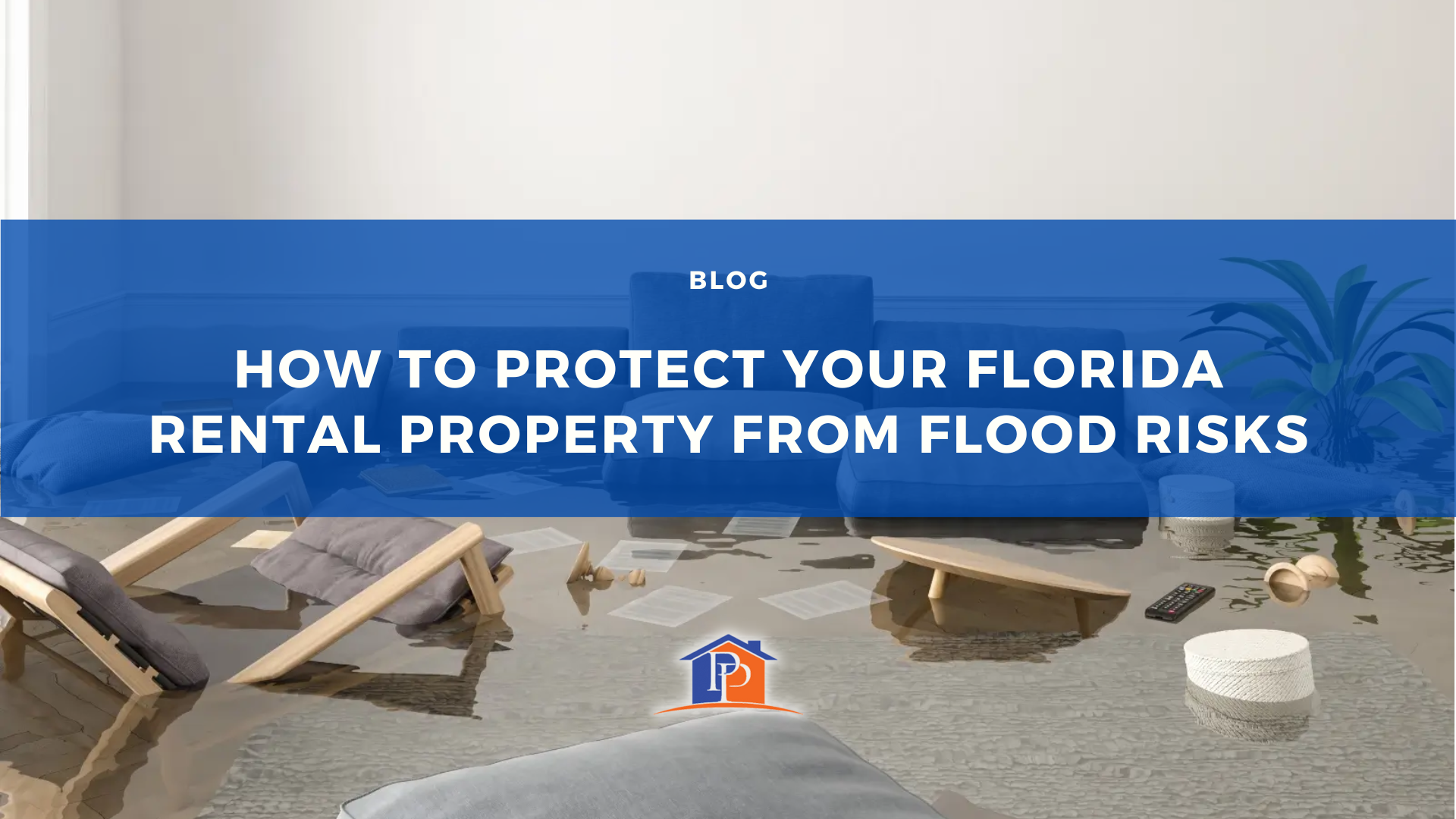Florida is one of the top 10 flood-prone states in the US, so assessing your rental home's flood risk is necessary for emergency preparedness.
Property owners know well enough that flood damage is only one of the many risks that come with disasters, so in the event of a flood, you need to be ready to protect both your tenants and your personal property.
Key Highlights:
- Florida rental properties face high flood risk, making it essential for landlords to understand their flood zone classification using FEMA flood maps.
- Properties in Special Flood Hazard Areas (SFHAs) are at higher risk and may be required to carry flood insurance.
- Flood insurance can be purchased through the National Flood Insurance Program (NFIP) or private insurers, but it carries a 30-day waiting period before coverage begins.
- Landlords should assess all insurance options, as NFIP coverage may not fully meet the needs of certain rental properties, especially those in coastal areas.
- Proactive flood preparedness includes installing sump pumps and flood vents, setting up barriers, maintaining backup generators, planning evacuation routes, and unplugging appliances during storm warnings.
Knowing the Flood Zones
Flood zones are designated areas that are prone to flooding, and understanding your property’s flood zone is critical for purchasing flood insurance coverage. The Federal Emergency Management Agency (FEMA) provides flood zone maps to help rental property owners assess their flood risk.
The three categories are high-risk, moderate-risk, and low-risk areas. For high-risk flood zones, also known as Special Flood Hazard Areas (SFHAs), flood insurance coverage is usually required.
With the unpredictable nature of disasters, knowing whether you're in a high-risk area or not can make all the difference, especially in Florida due to its extensive coastline.
Acquiring Flood Insurance
The National Flood Insurance Program (NFIP) provides insurance coverage to property owners in participating communities. To acquire the said insurance, property owners need to purchase insurance coverage through NFIP-participating insurance companies.
Keep in mind that coverage limits apply in certain options. You have to choose the right flood insurance policy if you want building and contents coverage from flood damage.
It's also important to note that the NFIP insurance has a 30-day waiting period before it can cover flood damage, so don't wait for a flood risk before acquiring the needed Florida flood insurance.
Assessing Insurance Options
The NFIP is not your only option, especially if you feel like the coverage doesn't suit your rental property. Work with insurance agents or property managers to determine which insurance providers offer the best coverage options and rates. Average flood claims under FEMA's flood insurance program, for instance, are $52,000.
Not all rental property floods are the same, given that natural disasters may vary based on location. Coastal cities, for instance, have to worry about flooding that rising sea levels can bring as well, seeing as tropical storms and hurricanes can push seawater onto land.
Landlord Preparedness
As a Florida landlord, one of your property management duties includes flood preparedness, and that is not limited to establishing financial protection during flood events and costly damage. Some of the proactive measures you can take are:
- Install flood vents and sump pumps, allowing you to remove floodwater. This can prevent water damage to electrical wiring and foundation walls, as well as your personal property.
- Put up barriers to redirect floodwater away from your rental property. This protects your property from extensive damage, even if a bit of excess water does enter your property. Keep in mind that this might not be enough when heavy rains raise the flood level too high.
- Have an electric generator in case of power outages. Some natural disasters are minor enough that you and your tenants aren't required to evacuate, but that doesn't mean you shouldn't expect outages in the area.
- Establish evacuation routes for your tenants and property managers. One important aspect of emergency preparedness is knowing where to go during storm surges, especially major storms that can flood the area quickly.
- In an upcoming storm, unplug all built-in appliances and elevate everything else. Water damage may sometimes be inevitable during heavy rainfall, but you still need to unplug everything to protect yourself and your tenants from electrocution.
- If you can, seal the cracks in your foundation to prevent the water from seeping in. It can significantly reduce water damage from flood water, or the need to drain out standing water.
Flood Preparedness FAQs
Does insurance cover flood damage?
- Some insurance plans only cover water damage caused by burst pipes or leaks. Otherwise, you might need additional coverage to protect your building and personal belongings.
Do property managers handle emergency situations like flooding?
- Yes. One of a property manager's critical roles during a natural disaster is handling the safety of your tenants, as well as securing your rental property.
What is the difference between a flood watch and a flood warning?
- A flood watch means conditions are favorable for flooding. A flood warning means flooding is already occurring or is imminent.
Can floods happen outside of high-risk areas?
- Yes, about 25% of flood insurance claims come from properties outside of high-risk flood zones.
Is flood insurance mandatory?
- It is required if your property is in a high-risk flood zone and you have a federally backed mortgage.
How can I find out if my property is in a flood zone?
- You can check your flood risk using FEMA’s Flood Map Service Center or consult your local municipality.
Hiring Professional Property Management to Reduce Risks
Landlords have the responsibility to protect their tenants, and not just the building. However, in extreme cases like storm surges, many homeowners can understandably be overwhelmed. After all, safety is on the line.
With companies like Pristine Property Management, you will have access to expertise and experience, which means that any situation that might come your way will be handled with effectiveness and efficiency. When you want to protect your tenants and rental property, bringing in a professional to help you carry that weight can help you be a stress-free landlord.
We can discuss how our company can help you achieve your goals. Contact us today!

 Login
Login

